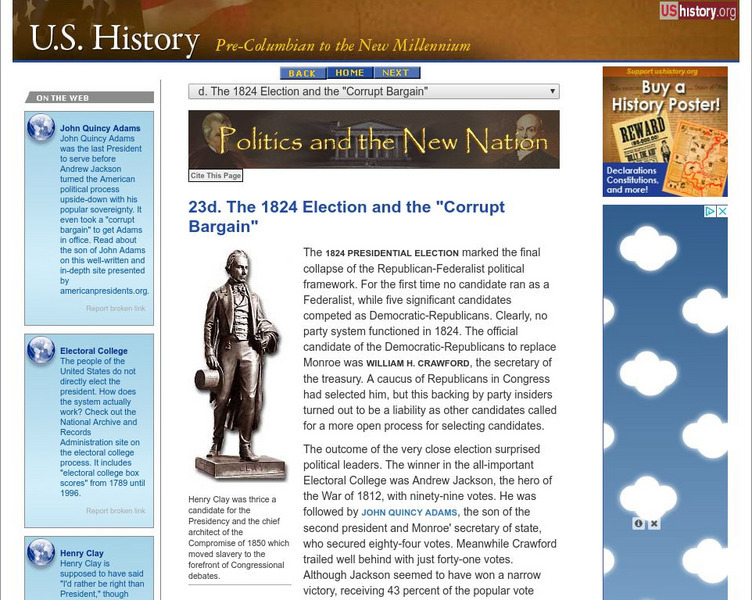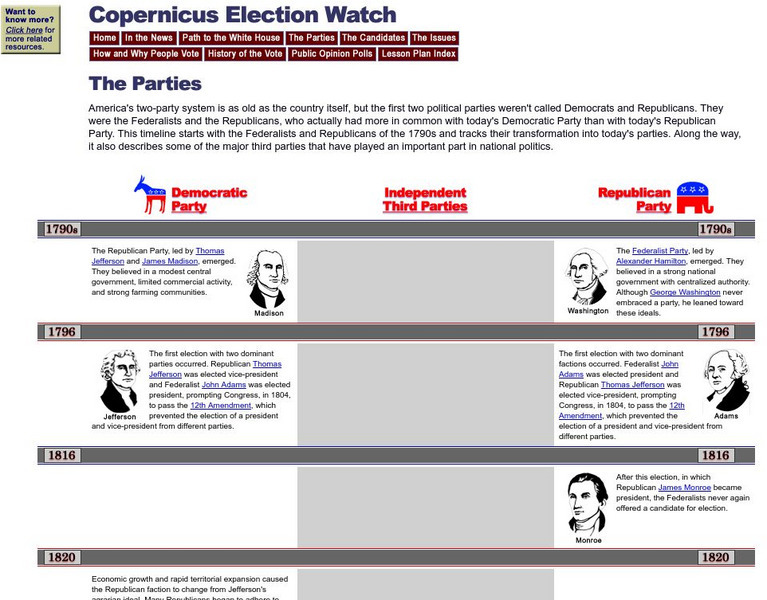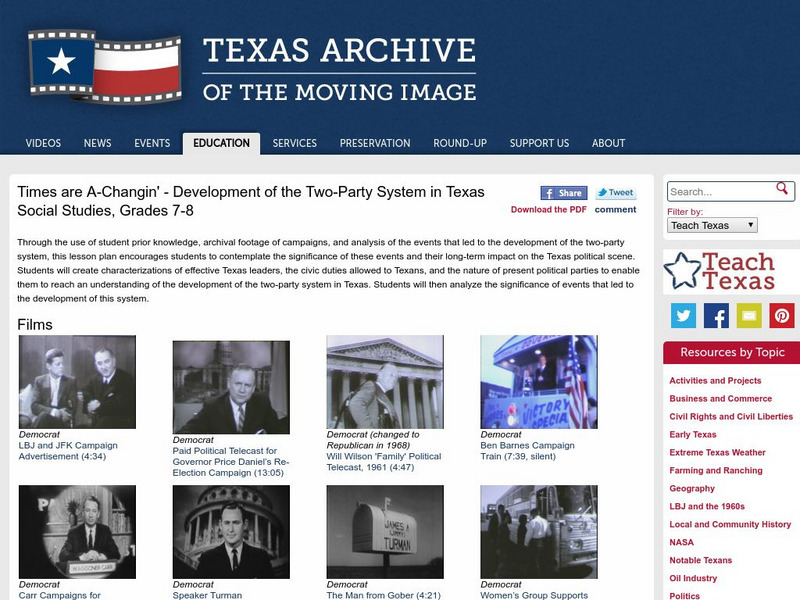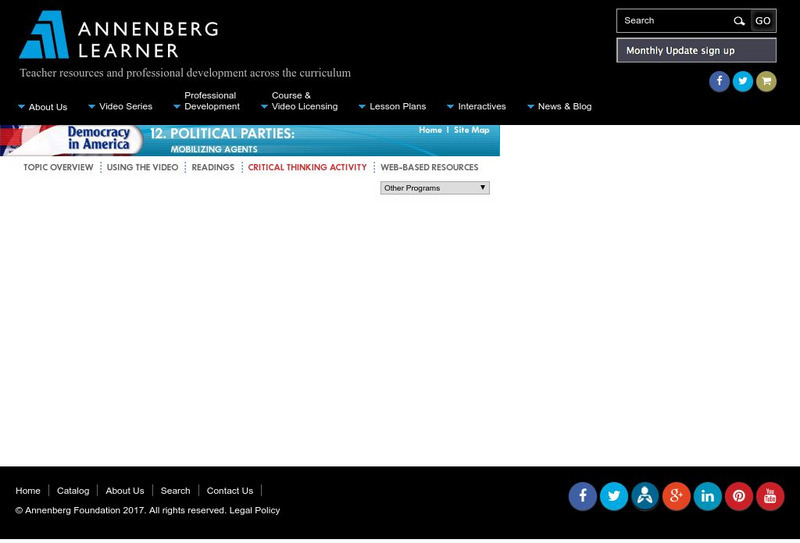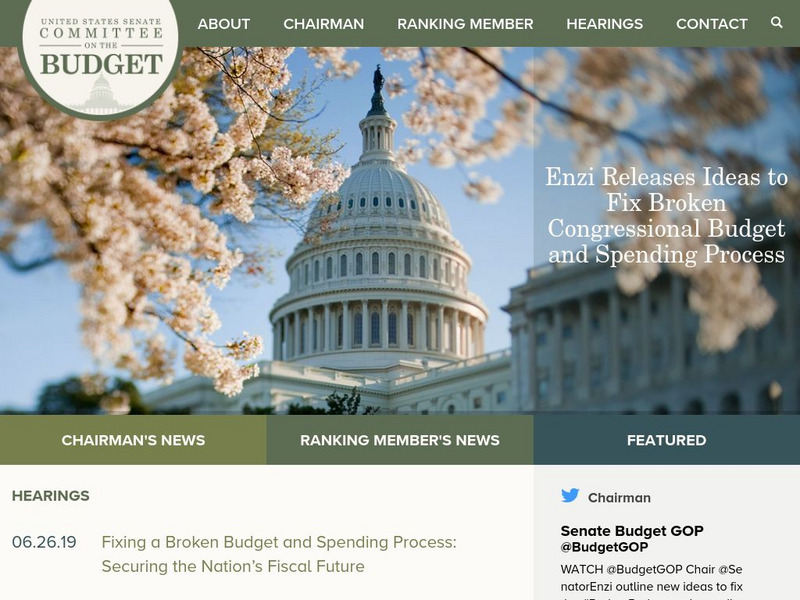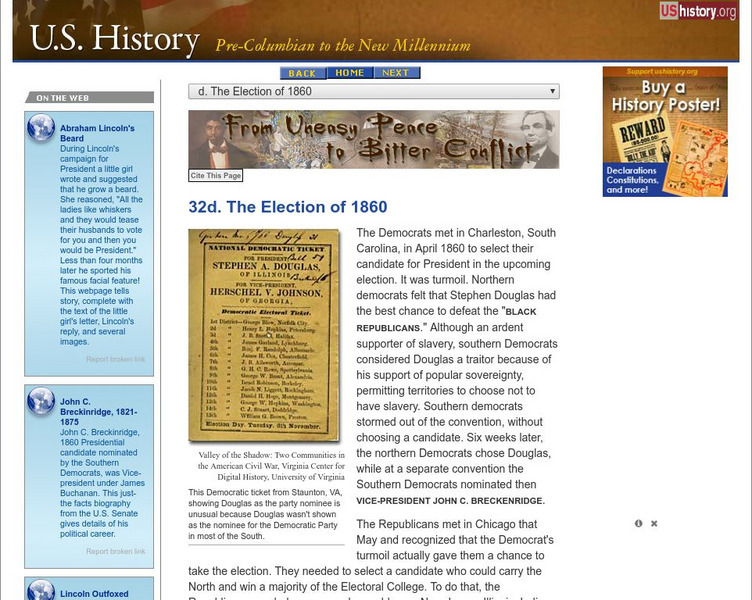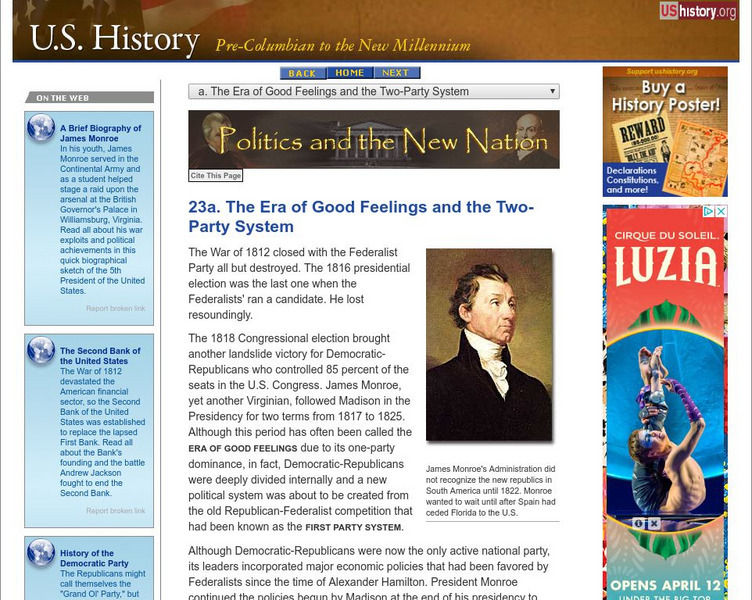Independence Hall Association
U.s. History: Republican Philadelphia
Philadelphia today leans to the Democratic ticket in most elections. This website, ushistory.org, is completely nonpolitical, but it offers resources for right-leaning visitors to feel right at home when visiting.
Other
National Republican Congressional Committee
The official site of the National Republican Congressional Committee.
Independence Hall Association
U.s. History: The 1824 Election and the "Corrupt Bargain"
The two-party system in presidential elections fell apart in the election of 1824. See what happened when five men, all from the Democratic-Republican Party, ran against each other. Find out why the choice of John Quincy Adams was called...
Independence Hall Association
U.s. History: Two Parties Emerge
Although George Washingon denounced the creation of political parties, they came roaring into play in the election of 1796 in which John Adams, representing the Federalists, ran against Thomas Jefferson, who represented the...
Khan Academy
Khan Academy: Us History: 1800 1848: The Election of 1800
The growing partisanship between the Federalist camp, led by John Adams, and the Democratic-Republican camp, led by Thomas Jefferson, resulted in a bitterly contested presidential election in 1800.
Independence Hall Association
U.s. History: Republicans vs. Democrats
A review of Bill Clinton's domestic policies and scandals in his two terms of office. Focus is on the rancor of the Republicans against Clinton.
Other
Copernicus Election Watch: History of the Parties
This site has a great timeline that tracks the history of the Democratic, Republican, and some Independent Third Parties. Also some excellent links at the bottom of the page.
Alabama Learning Exchange
Alex: Elephant or Donkey?
Students will visit the websites for the National Republican and National Democratic Party. Students will choose topics of interest to them and compare the positions of both parties on the topic. Students will complete a graphic...
Other
Tami: Times Are a Changin' Development of the Two Party System in Texas
A collection of historical videos of political campaigns in Texas, which students analyze after an exploration of what qualities an effective political leader should have. They explore and discuss what Democrats and Republicans say in...
US National Archives
Our Documents: The Alien and Sedition Acts (1798)
The Alien and Sedition Acts were passed by Congress in 1798 because of feared war with France. This engaging page gives you the opportunity to see a complete copy of the original document and also gives links to a typed transcript,...
PBS
Pbs News Hour: Thomas Jefferson the Revolution of 1800
This is a teacher site, with lesson objectives and plans, but it contains very good information and ideas to stimulate thought and understanding. It explains the technicalities of the election of 1800 and the peaceful transfer of power...
Annenberg Foundation
Annenberg Learner: What Is Your Affiliation?
Political parties have platforms that describe their principles and issue stances in areas such as taxes, education and immigration. Answer the questions to see which party (Democratic, Republican, Green and Libertarian) is your best fit.
US Senate
Us Senate Budget Committee
Use this resource to learn more about the Senate Budget Committee. It is divided into two parts. The first is a Republican website and the second is a Democratic website.
Independence Hall Association
U.s. History: The Election of 1860
The election of Abraham Lincoln in 1860 was a watershed moment for the union of the country. Read about the political conventions, several candidates, and the votes that were split among them. Find a map that shows how the electoral...
Digital History
Digital History: The Election of 1800 [Pdf]
Perhaps the most important election in United States history, the election of 1800 pitted John Adams against Thomas Jefferson. Read about their differences and the differences in the political parties that supported them. [pdf]
Ibis Communications
Eye Witness to History: Washington d.c. 1800
This article offers personal accounts from Abigail Adams regarding her journey and arrival in the new national capital.
Independence Hall Association
U.s. History: The Era of Good Feelings and the Two Party System
The Era of Good Feelings lasted about a decade, spanning the administration of James Monroe. Read about the policies followed during his administration, and find out why, after the demise of the Federalist Party, there arose another...
Independence Hall Association
U.s. History: Gabriel's Rebellion: Another View of Virginia
Gabriel Prosser, a skilled slave, planned a revolt as a way to carry out the ideals of the American Revolution and give freedom to slaves. Read about what his vision was, what group of white men might be helpful to his cause, and what...
Independence Hall Association
U.s. History: The Election of 1800
The election of 1800 was momentous for many reasons. Read about the defeat of John Adams and his Federalist policies, and see how Thomas Jefferson became president because of a crucial vote by a Federalist.
The Dirksen Congressional Center
Congress for Kids: Elections: Political Parties
Lesson plans on elections and the role of political parties. Find multiple choice quizzes, vocabulary, and a role play of a candidate in a town meeting.
Curated OER
1916
CNN provides a brief account of Democratic party history from the party's origins in the Democratic-Republican party to the present, including information on the era preceding the Civil War.
Curated OER
1940
CNN provides a brief account of Democratic party history from the party's origins in the Democratic-Republican party to the present, including information on the era preceding the Civil War.
Curated OER
1972
CNN provides a brief account of Democratic party history from the party's origins in the Democratic-Republican party to the present, including information on the era preceding the Civil War.
Curated OER
1976
CNN provides a brief account of Democratic party history from the party's origins in the Democratic-Republican party to the present, including information on the era preceding the Civil War.


